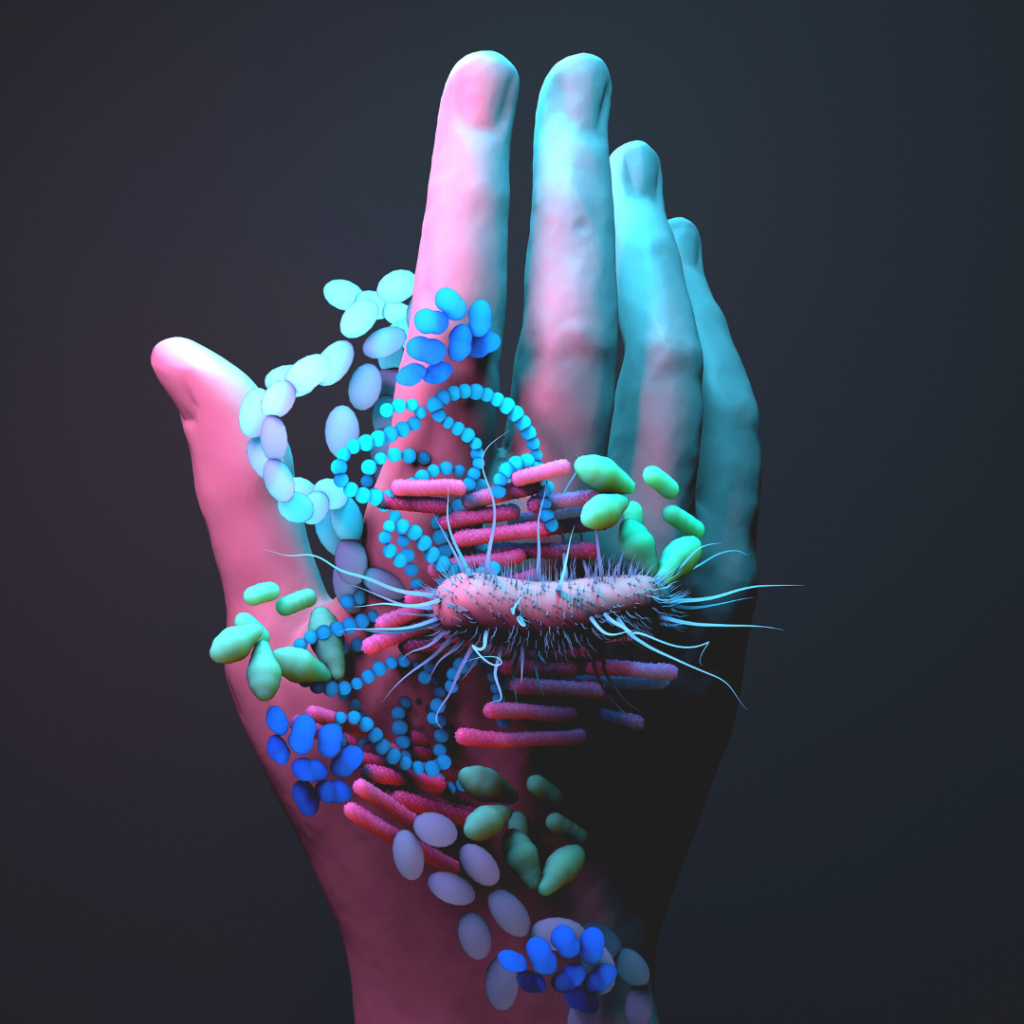
Explore Your Microbiome
About Your Microbiome |Microbiome Composition |Gut Microbiome |Skin Microbiome |Other Microbiomes
Explore Your Microbiome
Micro-organisms that live together in a particular habitat form a microbiome, according to the Microbiology Society. Humans have their own microbiome, as do plants, animals, soils, and even oceans. As you explore your microbiome, it is important to understand that researchers only recognized the existence of the microbiome in the late 1990s.
During that time, as scientists and researches gained access to more and more sophisticated tools, they were able to research the microbiome and the role it plays in your body. Research into the microbiome is ongoing, with microbiologists, biological chemists, and physicists coming together to explore the microbiome and its relationship with your body and environment.
What Is The Microbiome Made Of?
The microbiome is made of micro-organisms, which are also called microbes or microbiota. In your body, there are ten times more microbes than there are cells. The micro-organisms which make up your microbiome are:
- Bacteria
- Viruses
- Fungi
- Archaea – these have no nucleus
- Eukarya – these have a nucleus
- Protists – these are between a fungus and a plant
These micro-organisms co-exist in your microbiome. As a result, they work together to help with your development, nutrition, and immunity.
Everyone’s microbiome composition is unique and determined initially by DNA. As you grow, your diet and environment play a role in changing your microbiome. These changes can be either beneficial or detrimental.

Explore The Microbiome In Your Gut
There are several places in your body where you have a microbiome.
One of these is the gut, or the gastrointestinal tract. The microbiome in your gut are present in the stomach and the intestines. Here the micro-organisms that form your gut microbiome take part in several key processes:
- Synthesis of vitamins and amino acids
- Break down of complex carbohydrates in the large intestine
- Break down of toxic food particles
- Protect against other pathogenic organisms
- Stimulate the immune system
When your gut microbiome is in balance, the bacteria in your stomach and intestines exist in a symbiotic relationship with your body. A symbiotic relationship provides mutual benefits. However, there are times when your microbiome can become unbalanced. This is called dysbiosis and some of its symptoms are:
- Stomach upsets
- Bad breath
- Bloating
- Nausea
- Diarrhea
- Constipation
Talk to your doctor if you notice any of these symptoms. Since your gut microbiome is involved in many cellular processes that keep you healthy, it is important to keep it in balance. Scientists continue to explore the gut microbiome for insights into and potential therapies for areas such as appetite, nutrition, and immunity.
Explore The Microbiome On Your Skin
A microbiome also exists on the largest organ of your body, your skin. Exploring the microbiome on your skin reveals that the composition of your microbiome can vary depending on what part of the skin you are examining. In areas of skin that have more sebaceuos glands, the microbiome is different from areas of skin that tend to be moist, such as folds in the elbow and behind the knees.
As with your gut microbiome, the microbiome on your skin can become imbalanced. This dysbiosis of the skin microbiome is associated with several skin conditions:
- Acne
- Chronic would infections
- Atopic dermatitis – commonly referred to as eczema
- Eczematous-like skin condition in people with primary immunodeficiency
The microbiome of your gut also affects your skin and its microbiome. Some of the microbes in your gut produce anti-inflammatory effects, which in turn increase your skin’s ability to fight inflammation. Changes in your stomach microbiome may make your intestines more permeable, allowing the gut microbiota to leak. As a result, this may lead to inflammation in your skin.
The relationship between your gut and skin microbiome shows that it is important to keep your body’s microbiome in balance. Imbalances in the microbiome of a specific system can produce symptoms not only within that system, but also in other parts of your body.

Where Else Do You Have A Microbiome?
Through exploring the microbiome, researchers have found that they exist in different parts of the body. The places where you have a microbiome are:
- Eyes
- Mouth
- Lungs
- Skin
- Stomach
- Urogenital tracts of both men and women
Many different factors affect your microbiome, and may lead to imbalances in it. One of the ways you can reduce imbalances in your microbiome and promote your health is through the foods you eat. Certain types of foods are more beneficial to your microbiome than others. These foods fall into the following categories:
- Prebiotics
- Probiotics
- Postbiotics
While genetics and the environment you interact with greatly influence your specific microbiome, probiotic foods can help to promote the diversity of your gut microbiome. The microbiome in your gut influences your skin microbiome, so keeping it in balance may also enhance your overall health.
The microbiome in your body is dynamic, and its composition and diversity can change daily. Recent research into the microbiome focuses on the its role in promoting health and causes diseases. Other avenues of interest include balancing the microbiome and differences between the microbiome of a healthy person and that of someone with a chronic condition.
Through continued research, scientists are seeking ways in which the microbiome can help identify diseases before they occur, and increase treatment responses. There have already been several breakthroughs in this research. A recent study in the Journal of American Medical Association (JAMA) Dermatology reveals that a blend of unique probiotics reduces the symptoms of eczema and atopic dermatitis in children. Read on to learn more about the microbiome and how probiotics can help with eczema and atopic dermatitis.
References:
Microbiology Society: What Is a Microbiome?
Harvard T.H. Chan School of Public Health: The Microbiome
Medical News Today: What Is the ‘Map’ of the Human Microbiome?
